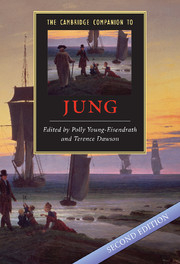Book contents
- Frontmatter
- New developments in the post-Jungian field
- Part I Jung’s Ideas and their Context
- Part II Analytical Psychology in Practice
- 5 The classical Jungian school
- 6 The archetypal school
- 7 The developmental school
- 8 Transference and countertransference
- 9 Me and my anima: through the dark glass of the Jungian/Freudian interface
- 10 The case of Joan: classical, archetypal, and developmental approaches
- Part III Analytical Psychology in Society
- Index
9 - Me and my anima: through the dark glass of the Jungian/Freudian interface
from Part II - Analytical Psychology in Practice
Published online by Cambridge University Press: 28 June 2008
- Frontmatter
- New developments in the post-Jungian field
- Part I Jung’s Ideas and their Context
- Part II Analytical Psychology in Practice
- 5 The classical Jungian school
- 6 The archetypal school
- 7 The developmental school
- 8 Transference and countertransference
- 9 Me and my anima: through the dark glass of the Jungian/Freudian interface
- 10 The case of Joan: classical, archetypal, and developmental approaches
- Part III Analytical Psychology in Society
- Index
Summary
“The present day shows with appalling clarity how little able people are to let the other man's argument count, although this capacity is a fundamental and indispensable condition for any human community. Everyone who proposes to come to terms with himself must reckon with this basic problem. For, to the degree that he does not admit the validity of the other person, he denies the “other” within himself the right to exist - and vice versa. The capacity for inner dialogue is a touchstone for outer objectivity.” (CW 16) “Without Contraries is no progression. Attraction and Repulsion, Reason and Energy, Love and Hate, are necessary to Human existence.” (W. Blake, 1790) / When Polly Young-Eisendrath first asked me, sometime in 1995, to write this essay on the interface between analytical psychology and other psychoanalytic schools, it sounded like a daunting task and I doubted that I was qualified to undertake it. I equivocated, asking her what exactly she meant by “other psychoanalytic schools.” “Oh, you know,” she replied with an ambiguous smile, “hermeneutical approaches, object-relations theory, interpersonal psychology, the various 'self'-psychologies, Kleinian theory, and your personal favorite, drive theory.” I felt an immediate sense of relief, born of a deep inner certitude that I would be utterly incapable of writing such an essay. Well, to be honest, Polly didn't actually say “and your personal favorite,” but it's the sort of thing she might have said. We had been discussing such matters for ten years (1985-1995) in a weekly study group of psychologists and psychiatrists.
- Type
- Chapter
- Information
- The Cambridge Companion to Jung , pp. 171 - 198Publisher: Cambridge University PressPrint publication year: 2008
- 1
- Cited by



